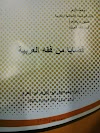Rukun Islam, or the Pillars of Islam, are the five fundamental acts every Muslim must believe in and practice. These pillars form the foundation of all worship and are essential for a person's Islamic faith. Without adhering to Rukun Islam, a person's faith is considered incomplete. Each pillar has its guidelines that encompass belief and practice in daily life.
Imam An-Nawawi stated in his book Arba'in Nawawi that anyone who fulfils the five Rukun Islam has achieved completeness in their Islam. This can be likened to a complete house with its structure and pillars.
عَنْ أَبِي عَبْدِ الرَّحْمَنِ عَبْدِ اللهِ بْنِ عُمَرَ بْنِ الخَطَّابِ رَضِيَ اللهُ عَنْهُمَا قَالَ: سَمِعْتُ رَسُوْلَ اللهِ ﷺ يَقُوْلُ: «بُنِيَ الإِسْلاَمُ عَلَى خَمْسٍ: شَهَادَةِ أَنْ لاَ إِلَهَ إِلاَّ اللهُ وَأَنَّ مُحَمَّدًا رَسُوْلُ اللهِ، وَإِقَامِ الصَّلاَةِ، وَإِيْتَاءِ الزَّكَاةِ، وَحَجِّ البَيْتِ، وَصَوْمِ رَمَضَانَ» رَوَاهُ البُخَارِي وَمُسْلِمٌ.
"From Abu Abdirrahman Abdullah bin Umar bin Khattab (may Allah be pleased with them), he said: I heard the Messenger of Allah (peace be upon him) say: 'Islam is built upon five: the testimony that there is no god but Allah and that Muhammad is the Messenger of Allah, establishing prayer, giving zakat, performing Hajj to the House, and fasting during Ramadan.' (Narrated by Al-Bukhari and Muslim)."
The Five Pillars of Islam
The five pillars of Islam are as follows:
- Shahada (شهادة): The declaration of faith, stating, "There is no god but Allah, and Muhammad is the Messenger of Allah." This is the gateway into Islam and a recognition of Allah's oneness and Muhammad's prophethood (peace be upon him).
- Salah (صلاة): The obligatory prayer performed five times a day, serving as a direct communication between the servant and Allah. Salah is the first act to be accounted for on the Day of Judgment.
- Zakat (زكاة): The act of giving a portion of one’s wealth to those in need (mustahik) to purify oneself and one’s wealth, as well as to assist those who are less fortunate.
- Sawm (صوم): Fasting from dawn until sunset during Ramadan, refraining from eating, drinking, and other invalidating actions. This practice is a means to cultivate piety and self-discipline.
- Hajj (حج): The pilgrimage to the Holy Kaaba in Mecca is obligatory for those who are physically and financially able to perform it at least once in their lifetime. Hajj represents total devotion to Allah through a series of rituals performed in the holy land.
The Importance of the Pillars
Imam An-Nawawi further clarifies that the five pillars form the core foundation of Islam. A person is not regarded as a complete Muslim unless they actively practice all these pillars to the best of their ability and in line with Islamic law. Moreover, supplementary obligations and Sunnah practices enrich this fundamental framework.
By thoroughly grasping and embodying the Rukun Islam, a Muslim can live according to Islamic principles, which pave the way for happiness and salvation in this life and the Hereafter.
In summary, Rukun Islam is essential to a Muslim's faith and practice. They provide a framework for worship and a guide for living a life that aligns with Islamic principles. By fulfilling these pillars, Muslims can strengthen their faith and contribute positively to their communities, fostering a sense of unity and purpose.









